Environmental Studies is a comprehensive field that encompasses various branches of science, such as chemistry, physical science, life science, agriculture, health, and sanitary engineering. This intriguing subject plays a significant role in CTET and other State TET Exams, featuring 30 questions.
The Environmental Science section in these exams is divided into two parts: Subject Content, accounting for 15 marks, and EVS Pedagogy, also worth 15 marks. To excel in the CTET Exam, it is recommended to study the NCERT books from classes 1 to 8 thoroughly. In this article, we will provide an introductory overview of EVS Pedagogy to aid your preparation.
CO-CURRICULAR ACTIVITY (CCA)
A co – curricular activity is defined as a programme or out of class activity, supervised and/or financed by the school, which provides curriculum – related learning and character building experiences. Co – curricular activities are voluntary.
‘Co – curricular activities’ means activities conducted on or off school premises by clubs, associations and organizations of pupils sponsored by the Board of Education.
Teachers have some definite responsibilities for their organization; many full time professional teachers are employed, school rooms, time, equipment and materials are provided. Their relationships with regular curricular activities are regarded as vital; credit for participation is allowed and recognition is also given.
In short, we can say that according to modern education thinkers, curriculum is not only teaching and learning in classroom. It also includes work in library, laboratory and workshop, participation in games and sports in playground and numerous informal contacts between teacher and pupils in these places.
(A) Types of Co – Curricular:
Activities Co – curricular activities are categorized under seven headings;
1. Literary Activities e.g. reading competition
2. Physical Development Activities e.g. games and sport.
3. Aesthetic and Cultural Development Activities e.g. folk dance competition, historical tour.
4. Civic Development Activities e.g. group discussion, public speaking.
5. Social Welfare Activities e.g. helping the people cleaning the society, community services.
6. Leisure Time Activities e.g. music, theatre.
7. Excursion Activities e.g. tour, picnic.
(B) Importance of Co – Curricular:
1. Educational Value: These activities have great ‘educational’ potential. All classrooms teaching is theoretical, Practical knowledge can be imparted through co – curricular activities. Excursions and tours provide first – hand experience and reinforce classroom knowledge in subjects like History, Geography, and Nature Study etc. Language and expression improves through debates and recitations. School magazines teach students the art of writing forcefully and effectively. Celebration of functions develops organizational capacities and leadership qualities in students.
2. Psychological Value: These activities help in expressing personal behavior and provide a vehicle for creative thinking. These activities act as agent for sublimation of the instincts. Co – curricular activities are a means of channelizing students’ instincts into healthy and fruitful channels e.g. instinct of curiosity can be fruitfully channelized by library, stamp and coin collection etc.
3. Emotional Health: A student is a bundle of innate urges or drives. It is natural for him/her to be curious, to show off, to master, to be loyal and to be sympathetic. Co – curricular activities provide valuable opportunities in which these drives may be capitalized for educational benefit.
4. Recognition of Individual Differences Co – curricular Activities: By providing a number of co – curricular activities, we can ensure the expression of potential capacities of each individual e.g. writing, speaking in public, dramatics, painting, different games and sports, organization of functions etc and provide training in different aspects of personality of students. These activities cater to aptitude, interests and abilities of students and sometimes act as a determining factor for the choice of future vocation.
5. Development of Social Value: Social co – operation is recognized as one of the important demands of citizenship. By participating in group activities, students learn good manners and develop a sense of co – operation Students learn to appreciate the relationship of an individual to the social group. Through team activities, students learn social co – operation. They develop group spirit, ‘we’ feeling, belongingness, unity and ability to be co – operative.
6. Development of Civic Value: In group activities, students learn the value of doing one’s duty. e.g. students’ self – government in schools provides an excellent training in exercising one’s franchise and shouldering responsibilities. They develop in students a spirit of toleration of others’ views, healthy exchange of ideas, fellow feeling and views, healthy exchange of ideas. Fellow feeling and accepting victory and defeat with grace. On the playground, students get opportunities to develop leadership qualities like initiative, decision – making judgment, tolerance etc. These qualities are required for a democratic society.
7. Physical Development Value: While games, sports and athletics directly contribute to physical development of students, other co – curricular activities also indirectly contribute to it.
8. Recreational Value: By providing and organizing various activities, we provide wholesome opportunities to our students, rather than to spend their spare time in undesirable activities e.g. Movies, TV, Idle talk etc. Hobbies developed at the secondary school stage become lifelong habits. Such activities also divert student’s attention from harmful activities like drugs, crimes etc. and channelize their energies in fruitful activities.
9. Cultural Value: Some co – curricular activities are of tremendous value, as they help in providing opportunities for better understanding of our cultural heritage and traditions, e.g. activities like dramatics, folk songs, dance, folk music, exhibitions and celebration of various religious and social festivals provide better knowledge and understanding of our culture, foster cultural tastes and awaken cultural interests among students.
10. Experimentation: A good EVS curriculum must not only give balanced emphasis to both theory and experiments but also integrate these two essential and complementary aspects of EVS in the teaching – learning process. Modern EVS is the result of a creative interplay of experiments, observations and theoretical inference. There are several ways in which experiments facilitate and improve the learning of Science.
(i) Experiments help students develop the right perspective of Science, namely that Science is not just a theoretical abstraction – it is an attempt to describe the working of the real world around us.
(ii) Experiments are among the most effective ways to generate interest in Science.
(iii) Experiments promote the basic skills and competencies of doing Science procedural and manipulative skills, observation skills. Skills of representing and interpreting data and the accompanying conceptual and critical abilities.
(C) Limitations of Co – Curricular:
Despite several laudable efforts in the past, experiments by and large, have continued to be marginalized in our schools. There seem to be two principle difficulties. These are
1. Experiments require a certain minimum infrastructure, a laboratory with some basic equipment and consumables on a recurring basis.
2. Assessment of practical skills in Science in a sound and objective manner is by no means an easy task. The difficulty multiplies manifold if assessment is to be carried out on a large scale. Thus, lack of infrastructure and more important, lack of reliable assessment has resulted in the unfortunate neglect of experimental work in most of the schools in India.
(2) Categories of Practical Skills:
In the process of teaching, learning practical skills are of great importance. Practical skills can be categorized in following types
I. Procedural and Manipulative Skills
• Select appropriate apparatus / instruments for performing the experiment
• Know the limitations of the apparatus/instruments regarding their size, least count and accuracy.
• Arrange / assemble / set and adjust the apparatus systematically.
• Handle the apparatus, instruments, chemicals carefully to avoid any damage or injury.
• Perform the experiment with reasonable efficiency and accuracy.
• Separate and remove desired parts of a specimen for detailed study without damaging it.
• Use appropriate methods and materials for specimen mounting.
• Locate and rectify the errors in apparatus, instruments etc.
• Add chemicals in appropriate quantity.
• Dismantle the experimental set – up carefully.
• Practice the precautions in handling sensitive apparatus or chemicals or flame.
II. Observational Skills
• Find the least count of the instrument.
• Read the instrument correctly.
• Notice color change, evolution of gases, formation of precipitates, chemical reactions etc. carefully.
• Notice the relevant details in the given specimens minutely.
• Locate the desired parts in a specimen accurately.
• Take observations carefully and in a systematic manner.
• Read graph and map correctly.
III. Drawing Skills
• Making proper observation tables.
• Draw circuit diagrams, ray diagrams, experimental set – ups, sketches etc. correctly and proportionately.
• Labeling sketches and diagrams correctly.
• Drawing graphs maps from observed data correctly.
IV. Reporting and Interpretative Skills: Practical skills also help the student to interpret and help them in making reports. These can be helpful in following ways
• Make a proper plan for recording the observations.
• Record the observations/data/information correctly and systematically
• Classify and categorize organisms.
• Make correct calculations/predictions.
• Use proper formulae and mode of summarizing and reporting the result.
• Report the result using correct symbols, units, terms and chemical equations.
• Interpret the observations and results correctly.
Download Co-Curricular Activity in EVS Classroom Study Notes PDF

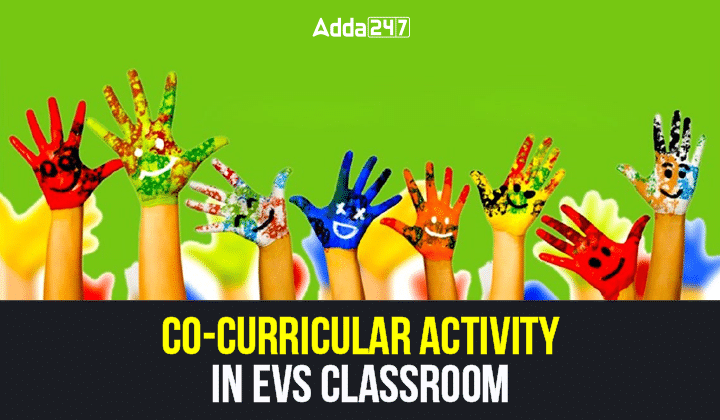
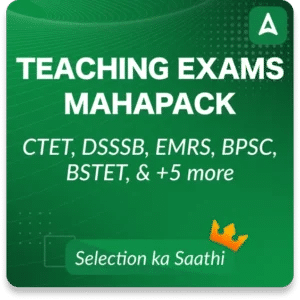

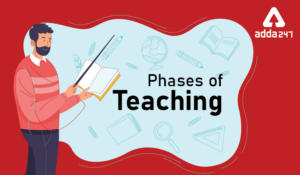 Phases of Teaching - Stages of Teaching ...
Phases of Teaching - Stages of Teaching ...
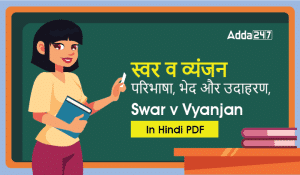 स्वर व व्यंजन - �...
स्वर व व्यंजन - �...
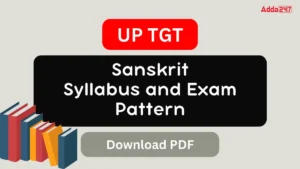 UP TGT Sanskrit Syllabus and Exam Patter...
UP TGT Sanskrit Syllabus and Exam Patter...




